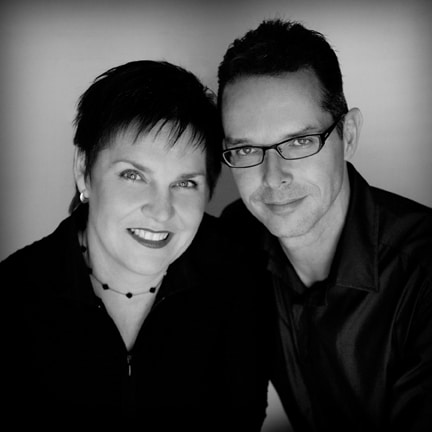
This lecture has been reprinted with permission from the Berkeley Zen Center. It is a lecture by a Japanese Zen Master about zazen (meditation practise). Many Reiki practitioners today are looking for avenues to build their skills without branching too far away from what we are growing to understand are the original teachings of Mikao Usui.
The teachings of Shunryu Suzuki in general appear to be very compatible with the teachings of Mikao Usui. There is an excellent biography written about this teacher called ‘Crooked Cucumber’ and a number of books on his teachings such as ‘Zen Mind, Beginners Mind’.
Because I have been practicing zazen for many years, some people may say, “He will not catch cold. He will not suffer from flu . . . but it was funny for him to stay in bed for so long.” We may believe that zazen will make us physically strong and mentally healthy, but a healthy mind is not just a healthy mind in its usual sense, and a weak body is not just a weak body. Whether it is weak or strong, when that weakness or strength is based on so-called “Truth” or “Buddha Nature,” then that is a healthy mind and a healthy body.
My voice may not be very strong yet, but today I’m testing it. Whether it works or not, or whether I speak or not, is a big problem for us. Whatever happens to us is something which should happen. So the purpose of our practice is to have this kind of complete composure.
In the Blue Cliff Record is a koan which concerns Baso Doitsu. Baso was big and physically very strong, a man of great stature. Once when Baso was ill, the monk who took care of the temple came to visit and asked him, “How have you been? Are you well . . . or not?” And Baso said, “Sun-faced Buddha, Moon-faced Buddha.”
The Sun-faced Buddha is supposed to live for one thousand eight hundred years. And the Moon-faced Buddha lives only one day and one night. So, when I am sick, I am like the Moon-faced Buddha. When I am healthy, I am like the Sun-faced Buddha. But neither the Sun-faced Buddha nor the Moon-faced Buddha has any special meaning. Whether I am ill or healthy, I am still practicing zazen. There is no difference. Even though I am in bed, I am Buddha. So, don’t worry about my health.
This is quite simple. It is actually what we are doing every day. The difference is that whatever happens to Baso, he can accept “things as it is, as it happens.” But we cannot accept everything. Some thing we think is good, we may accept, but some thing which we dislike we don’t accept. And we compare things. We may say, “He is a true Zen Master, but this other one is not,” or, “he is a good Zen student, but I am not.” That kind of understanding may be quite usual, but actually you cannot say say for sure.
To attain enlightenment means to have complete composure in our life, without any discrimination. But if we stick to the attitude of non-discrimination, that is also a kind of discrimination. The point is to attain complete composure, and ordinary effort associated with comparative thinking will not help you.
When I was still in Japan, I had some Zen students. Some of them were very rich and influential people, and others were students, carpenters, or people who did other kinds of work. In Japan we still respect or treat some people, a mayor or a teacher, in a different way. We have a special way of speaking to them. But I always told my students, “If you are a Zen student you should forget all about your position, work, or title. Otherwise we cannot practice zazen in its true sense.”
When you sit I say, “Don’t think.” “Don’t think” means not to treat things in terms of good or bad, heavy or light. Just accept “things as it is.” Even though you do not think, you may still hear something; and usually, the moment you hear it your reaction is, “What could it be?” “That is a car,” or “That’s very noisy. Maybe it’s a motorcycle.”
In zazen you should just hear the big noise or the small noise and not be bothered by it. This may seem impossible, especially for the beginner, because the moment you hear it, some reaction follows. But if you practice zazen, if you continuously just accept “things as it is,” eventually you can do it. The way you can do it is to be concentrated on your posture and your breathing.
In Japan a samurai practiced zazen to master the sword. As long as he was afraid of losing his life, he could not act with his full ability. Only when he was free from “to kill or to be killed,” would he react just to his enemy’s activity, and win. If he tried to win, he may lose. So practicing how to act without fear, which limits his activity, is the most important thing. Although it was a matter of whether or not he could survive on the battlefield, he fought his fight in the zendo.
We don’t have that kind of need in our everyday life, so we don’t feel the same necessity to practice. But our human problems are created because we make an effort to achieve something in a materialistic sense, and this limits our activity. Then we cannot achieve anything. That is what it means to achieve nothing.
We should understand our everyday activity in two ways, and be able to respond either way without a problem. One way is to understand our life dualistically: good or bad, right or wrong. And we should try to understand things in these terms. Also we should be able to ignore this dualistic understanding. Then everything is one. That is the other understanding: the understanding of oneness.
So at first you should be able to understand or accept things in two ways, but this is not enough. It is still dualistic. Without being attached to one of the two understandings, you should have the freedom to move from one to the other. Then you will not be caught by your particular understanding. Whatever you do will be the great activity of practice.
The Sun-faced Buddha is good; the Moon-faced Buddha is good. Whatever it is, that is good–all things are Buddha. And there is no Buddha, even. But usually when you say “no Buddha,” it means you are sticking to one way of understanding. When you do not stick to one understanding, then whatever you say is all right.
When you do not understand Buddha, then you will be concerned if I say there is no Buddha: “You are a priest, so how can you say there is no Buddha? Why do you chant? Why do you bow to Buddha?” There is no Buddha so we bow to Buddha. If you bow to Buddha because there is Buddha, that is not a true understanding of Buddha. Whatever you say, it is all right. “Sun-faced Buddha, Moon-faced Buddha”–no problem. Whether I am at Tassajara or San Francisco, no problem. Even though I die, it is all right with me, and it is all right with you. And if it is not all right, you are not a Zen student. It is QUITE all right. That is Buddha.
If I suffer while I am dying, that is all right, that is suffering Buddha. No confusion in it. Maybe everyone will struggle because of physical agony or spiritual agony, but that is not a problem. We should be very grateful to have a limited body like mine or like yours. If you had a limitless life, it would be a great problem for you.
On my wife’s favorite TV program there are some ghosts of people who lived long ago. They appear in this world, and create many problems for people and for themselves. That is what happens. We are reaching to the moon now, but we cannot create a human being in its true sense. A human being is a human being. We can enjoy our life only with our limited body. This limitation is a vital element for us. Without limitation nothing exists, so we should enjoy the limitation: weak body, strong body; man or woman. The only way to enjoy our life is to enjoy the limitation that was given to us.
“Sun-faced Buddha, Moon-faced Buddha does not mean to be indifferent: “I don’t care whether it’s the Sun-faced Buddha or the Moon-faced Buddha.” It means whether it’s the Sun-faced Buddha or the Moon-faced Buddha, we should enjoy it. This is also beyond non-attachment, because when our attachment reaches the point of non-attachment, that is real attachment. If you are attached to something, you should be attached to something completely. SUN-FACED BUDDHA, MOON-FACED BUDDHA! “I am here, I am right here.” This kind of confidence within ourselves is important. When you have this kind of confidence in yourself, in your being, you can practice true zazen, which is beyond perfect or imperfect, good or bad.
by Shunryu Suzuki-Roshi
Last revised April 5, 2000.
Copyright 2000 Berkeley Zen Center
Bronwen and Frans Stiene are the co-founders of the International House of Reiki and co-authors of The Reiki Sourcebook, The Japanese Art of Reiki, Your Reiki Treatment, The A-Z of Reiki Pocketbook and the Reiki Techniques Card Deck. Bronwen and Frans teach in the USA, Europe and Australia. Visit the Courses page to find a course near you.


Comments 4
Really enjoyed reading this.
I have a copy of Zen Mind, Beginners Mind…..will get on and read it now!
Hi Sean,
One of my favourite books!
Enjoy it.
Striving to reach this state of non-duality/non-attachment is a worthy goal, and if we don’t set the bar very high, we will not even have a chance of getting there. However, I am wondering if we can ever be 100% truly not attached to anything while living this life on earth. Perhaps it is only when one’s spirit leaves the physical body, which is living in this physical world full of duality, that a person can reach the complete state of non-attachment and non-duality, free from the limits of time & space, life & death, sickness & health, joy & sadness, day & night.
Hi Cathleen,
There are a few ways of looking at it. In reality our essence is already like that, so it is not about getting there, it is about realizing what we are already.
Thus we need to practice, practice the meditation practices so that we can realize what we are already.
Love
Frans